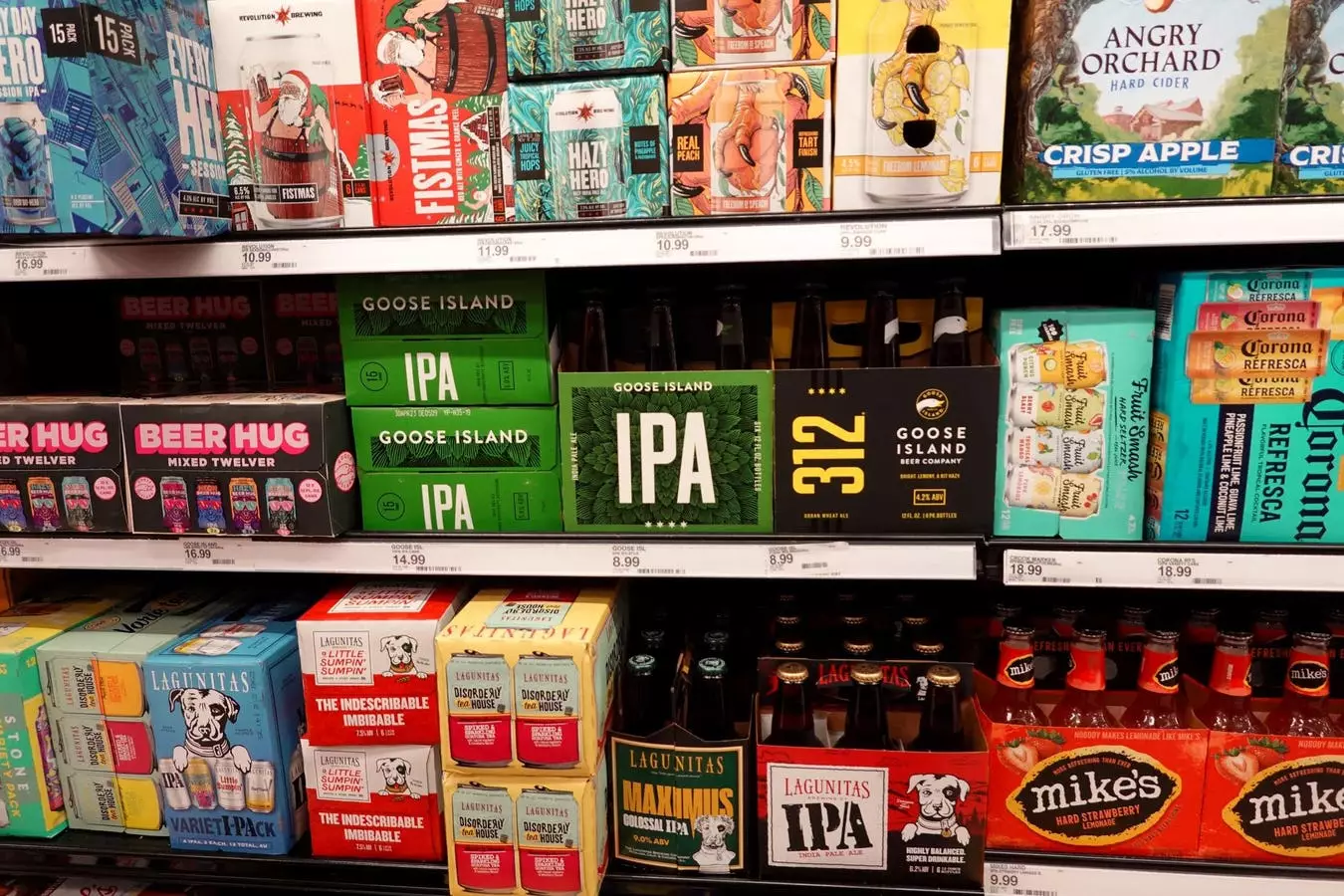The aftermath of the recent United States elections has left various industries in a state of uncertainty, particularly regarding how Donald Trump’s anticipated second term may reshape the landscape of American business. With a Republican majority likely in both the Senate and the House of Representatives, the environment appears ripe for Trump to advance his policy agenda without significant checks. Among the sectors keenly observing these developments is the U.S. beer industry, with the craft brewing segment, in particular, facing a myriad of challenges that could be exacerbated in the coming years.
Recent figures indicate a concerning trend for the U.S. beer market, with an overall production decline of 5.1% and a craft beer production drop of 1% in 2023, as reported by the Brewers Association. These figures reflect a broader decline in beer sales, which has compounded the difficulties faced by numerous small, independent breweries—entities that form the backbone of the craft beer movement. Although the number of breweries has increased, with a total of 9,906 establishments as of 2023, a net loss of 405 operations signifies a troubling shift from the rapid growth seen post-COVID.
Inflation and the rising cost of goods have emerged as primary concerns for brewers, signaling a challenging economic environment for the industry as consumer spending becomes increasingly cautious. Craft breweries, which heavily rely on localized market enthusiasm and innovation, are especially vulnerable to fluctuations in consumer behavior. The anticipated direction of Trump’s policies adds another layer of unpredictability.
One of the most pressing worries for brewers relates to Trump’s historical stance on tariffs, particularly his decision to impose a 10% tariff on imported aluminum in 2018. According to a report by the National Beer Wholesalers Association, this policy has been linked to job losses in the beer sector and has increased costs for consumers. As Trump’s administration is expected to continue its protectionist trade policies, small breweries could find themselves grappling with significantly higher costs—further threatening their viability in an already competitive market.
The Brewers Association has alerted its membership regarding the potential for escalating tariffs, particularly on key imports from China, including essential items such as cans and brewing equipment. With Trump suggesting tariffs could soar as high as 60%, the repercussions may be devastating. This scenario presents a paradox; while higher tariffs on imports could theoretically drive consumers towards domestic beers, the inflated costs associated with producing those beers could negate any benefits gained.
In addition to tariff concerns, the beer industry is bracing for possible tax reforms under the anticipated Trump administration. The expiration of tax deductions for pass-through entities—businesses that “pass through” income to owners to avoid corporate taxation—could adversely affect small breweries that operate on slim margins. The Brewers Association has cited the potential for exacerbated financial strain, particularly if there are attempts to replace lost tax revenue through new taxes.
Issues surrounding income taxing tips, essential for hospitality staff within taprooms and restaurants, could further complicate operational costs and employee compensation structures. These financial stresses reveal systemic vulnerabilities within the industry and could create a ripple effect that stifles innovation and expansion.
As the brewing landscape braces for potential political shifts, the fate of crucial regulatory bodies also hangs in the balance. Fallout from proposed cuts to federal agencies could lead to a reduced capacity for the Alcohol and Tobacco Tax and Trade Bureau and the USDA Agriculture Research Service to support the beer industry adequately. The ramifications may include delays in getting new products to market, challenges in labeling, and limitations on research valuable for developing new brewing techniques and ingredients.
Such operational hurdles could impede growth and innovation at a critical juncture when the craft beer industry is actively seeking to reclaim its footing after a significant contraction.
As Trump embarks on his second term, the U.S. beer industry—especially the craft brewing segment—faces an uncertain and potentially turbulent future. While certain policy decisions could positively impact the domestic market, the overarching threat of tariffs, tax reform, and regulatory constraints may serve to compound the challenges already besetting the industry. The complexities of navigating this landscape will demand agility and resilience from small breweries as they strive to adapt, survive, and ultimately thrive. In these uncertain times, one thing remains evident: the craft beer industry must be prepared for whatever brewing storms may lie ahead.

